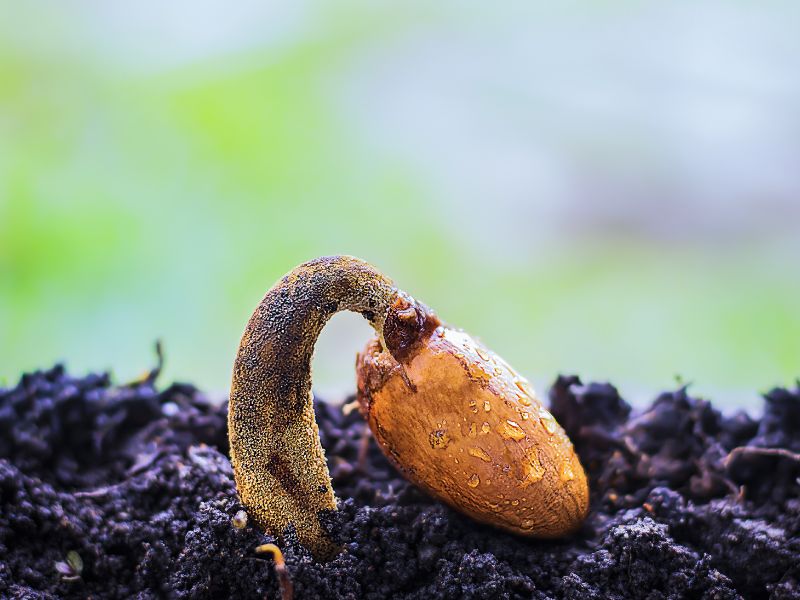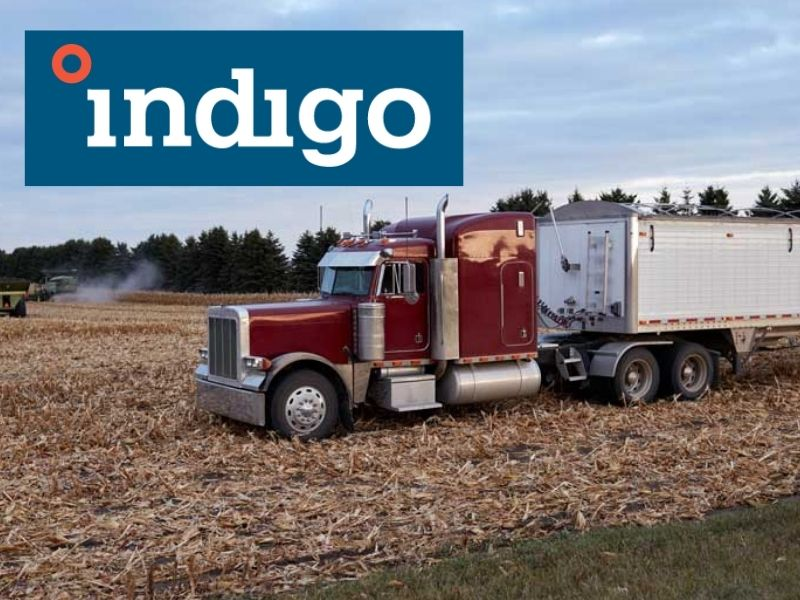
Indigo Agriculture is an agriculture science company that has created its own brand of seed inoculant. Inoculants are coatings of bacteria that are spread onto seeds before planting to provide nitrogen during growth. Nitrogen acts as a macronutrient that stimulates healthy immune responses in seedlings. Seeds treated with inoculants tend to grow into plants with heightened resistance to pathogens and are more capable of taking in water and other nutrients than untreated plants.
Indigo Agriculture’s Biotrinsic inoculants have some impressive effects across plant species: improved response to heat stress and drought in corn. Disease control against Fusarium and Rhizoctonia (fungi that disturb plant growth) in wheat. For soybeans, one of the most planted crops in the United States, Indigo Agriculture’s inoculants aid in plant nodulation and enzymatic production.
Treated crops are also more resilient to adverse conditions that could degrade overall soil quality over time. Indigo inoculants are naturally derived, non-GMO, and are extracted from plants that have survived “extreme stress”.

Carbon Farming
Plants capture carbon dioxide (CO2) from the atmosphere and move it into roots, then into microorganisms in surrounding soils, and eventually more deeply into underground sediments, where it will remain stored for millions of years or longer. Implementing large-scale agriculture operations with resilient and healthy crops will naturally help vegetation and soils enhance the rate at which farmlands absorb and store excess, human-emitted carbon dioxide. Indigo Agriculture farming techniques – in conjunction with other eco-regenerative practices – can therefore be used as a climate solution strategy.
Indigo Ag Carbon Credits
This year, Indigo Agriculture teamed up with Corteva Incorporated, a seed and chemical company, on a new production contract project for farmers, “Carbon by Indigo”. Carbon by Indigo is a program that makes registry-issued agriculture carbon credits.
What Are Carbon Credits?
Carbon credit registries track how carbon emitters are performing in efforts to offset their carbon dioxide emissions. Industries usually offset their emissions through agriculture production or reforestation. Crops indirectly reverse the greenhouse effect by capturing and storing carbon dioxide gas in soils. Carbon credits are a system for estimating how much carbon is being sequestered in a given area of land.
The 267 paid growers currently participating in the Carbon by Indigo program must provide data about their growing progress and report crop production. Carbon pulled from the atmosphere by vegetation and soils is purchased by a variety of organizations for so-called carbo credits, which “offset” or cancel out their carbon emissions. This program has created a new opportunity for farmers to make money through carbon credit sales.
The purchase of carbon credits will surely go on to be implemented by organizations-both private and governmental-to achieve carbon neutrality or reduce their carbon footprint in the coming years. Starting in the crop year 2022, farmers in Michigan, New York, Alabama, Vermont, Pennsylvania, and Virginia will be able to farm carbon via Carbon by Indigo. Indigo Agriculture announced that it will expand the qualifications for farmers in 28 more states soon. The company believes that nearly 80% of farm acreage in the United States is viable for high-quality carbon farming.
Indigo Agriculture also has plans to make transporting simpler and less time-consuming for both farmers and carriers.

Agriculture Ag
Indigo Transport is what Indigo Agriculture is calling its transportation operation. Indigo Transport works by allowing farmers to upload their produce yields onto the Indigo Marketplace. Access to Indigo Marketplace allows farmers to access potential buyers who bid for crops. Once farmers have chosen from a list of buyers, they can then decide to ship their produce using Indigo Transport. Representatives at Indigo Agriculture confirm the order, match it to a carrier, and handles the rest- like shipping and payment. Finally, farmers will receive a check in the mail for their successful sale on Indigo Marketplace.
Farmers who use Indigo Transport can expect benefits in three ways. The first comes from using Indigo Agricultures’ “Market+”, where farmers can post the crops that are for sale. Posting crop yields exposes farmers to a broad network of buyers and other potential clients. Yields are sold from the Indigo Market+, so farmers receive an upfront payment and always know exactly what to expect from each sale.
Secondly, Indigo Agriculture takes care of shipping through Indigo Transport. This transportation system is an extension of Market+. Local carriers are matched by Indigo representatives, while on-farm pick-ups are coordinated by third-party truck drivers for the convenience of farmers.
Farmers also benefit from being able to see freight costs up front. Freight refers to trucks and ships that transport goods between facilities. Figuring out the logistics of transport after a sale can be grueling. Freight has to be scheduled, assigned a truck with a driver, and be picked up and delivered securely. Therefore, shipping can detract from farmers’ total profits. However, if farmers and shippers are better informed about the logistics of their trades, then they can potentially save themselves money, time and headaches.
Leave a Reply